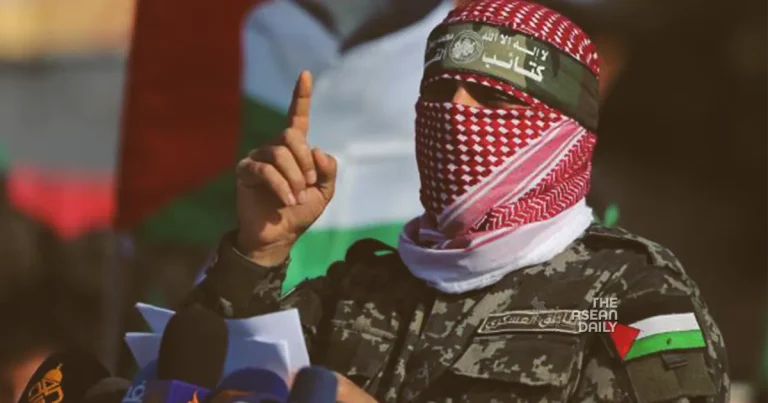14-10-2023 (BEIRUT) Tensions escalated between Lebanese militant group Hezbollah and the armed forces in northern Israel, sparking fears that the conflict in Gaza could spread throughout the region. Analysts suggest that if an Israeli ground incursion occurs in the north of the Gaza Strip, it could potentially involve other regional actors, including Hezbollah and Iran.
Firas Maksad, a senior fellow at the Middle East Institute, stated that Hezbollah’s involvement in the neighboring conflict would be a significant game-changer. He emphasized that Hamas, the militant group in Gaza, pales in comparison to Hezbollah, which is widely recognized as the most powerful non-state military force globally. Maksad believes that Hezbollah’s participation would have far-reaching implications not only for Israel but also for the entire region.
Hezbollah operates as both a political party and a paramilitary group and is designated as a terrorist organization by the United States. It holds significant power in Lebanon through its Shiite political party, which controls 62 seats in the country’s Parliament, and its Iran-backed proxy militant unit.
The “Party of God,” as Hezbollah is often referred to, was established during Lebanon’s civil war in 1982 with support from Iran and Iran’s Revolutionary Guard. After a war with Israel in 2006, the group gained strength, and its military wing has surpassed Lebanon’s army as the country’s main military force.
However, experts note that Hezbollah does not enjoy the same level of domestic popular support it had in 2006 to support a military operation in Israel’s current conflict with Hamas. Joseph Daher, author of “Hezbollah: The Political Economy of Lebanon’s Party of God,” explained that Hezbollah has become a key regional actor, but the Christian community in Lebanon opposes or criticizes the group.
Daher emphasized that the scale of Hezbollah’s intervention depends on various factors. He highlighted the group’s extensive experience gained from military involvement in Syria, Iraq, and Yemen. Hezbollah is intrinsically linked to Iran ideologically, politically, militarily, and economically, but it also operates with autonomy as a Lebanese actor.
Hilal Khashan, a professor of political science at the American University of Beirut, expressed doubt that Hezbollah would fully engage in the conflict. He stated that regardless of Israeli Prime Minister Benjamin Netanyahu’s decision, Hezbollah would refrain from opening a front against Israel from southern Lebanon to avoid justifying Israel’s destruction of Lebanon. Khashan claimed that Iran has already informed Israel and the United States through intermediaries that it would rein in Hezbollah.
Hezbollah’s deputy chief, Naim Qassem, declared the party’s readiness to contribute to the fighting. He dismissed behind-the-scenes calls from great powers, Arab countries, and the United Nations, stating that they would have no effect on Hezbollah’s decision.
Lebanon is currently grappling with its worst economic crisis in history, characterized by triple-digit inflation and a currency that has lost over 90% of its value since 2019. The majority of the Lebanese population lives below the poverty line. Hezbollah exerts strong control over Lebanon, overseeing border crossings and wielding significant political influence, which it leverages to block crucial political appointments.
Given its involvement in conflicts in Syria, Iraq, and Yemen, engaging in a new front against Israel could be detrimental to Hezbollah. Experts argue that Iran may hesitate to deploy its strongest international militia to defend Hamas in Gaza or engage in a fresh conflict in Israel.
Firas Maksad highlighted the importance of public opinion in Lebanon for Hezbollah. He noted that the group’s constituencies are experiencing war fatigue and are under immense pressure due to Lebanon’s financial collapse. The Biden administration has demonstrated solidarity with Israel by deploying a carrier strike group to the Eastern Mediterranean and sending the U.S. Secretary of State. Maksad stated that the U.S. is doing its utmost to deter Hezbollah and Iran from entering the war, and the deployment of the USS Gerald R. Ford is an attempt to contain the conflict.
Hezbollah’s formidable military force poses a significant threat to the region. Professor Khashan compared its armed component to a medium-sized European army, capable of defeating the Lebanese military or occupying Saudi Arabia. However, he acknowledged that Hezbollah is primarily trained for asymmetric warfare and would have no chance against the Israel Defense Forces in the event of total war.




